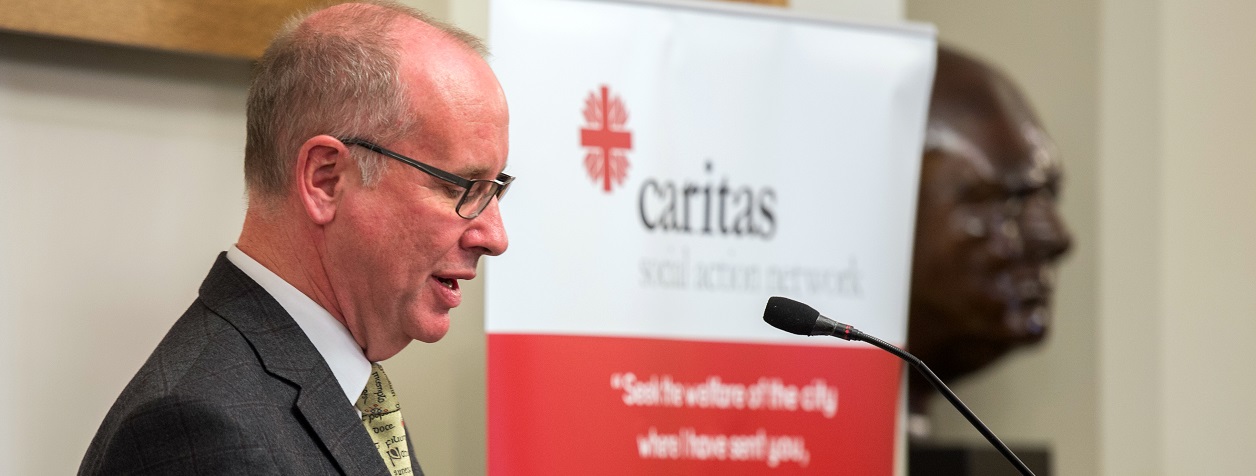A new health and care work visa was announced by the government on 13 July 2020, which excludes ‘low-skilled’ roles in social care. It will be within a new points-based immigration system which comes into force from 1 January 2021 when freedom of movement with the EU ends. The new system, said Home Secretary Priti Patel, will allow the UK to ‘attract the best and brightest from around the world’.
Dr Philip McCarthy, Chief Executive of Caritas Social Action Network (CSAN, pictured), said:
‘There needs to be a new political and financial settlement for care homes and domiciliary care which recognises the commitment and vocation of carers. The pandemic has shown just how much we rely on people to do this essential but often unsung work, and over the last months care workers have risked their own health and that of their families. I hope the Government and employers will invest in the skills of care workers so that we can build a care system to be proud of.’
Mark Wiggin, Director of Caritas Salford (CSAN member), highlighted the situation of existing staff already here on low wages, such as a refugee who wants to bring their family over to join them under the visa scheme:
‘Currently there is a minimum income requirement of £18,600 plus £3,800 for the first child and then £2,400 for the next child, so if you want to bring your two children in addition to your wife you need an extra £6,200, giving you a total income of £24,800. The current government minimum income requirement would effectively prevent a family reunion taking place for low paid workers.’
Paul Bott, Chief Executive of St John of God Hospitaller Services (CSAN member), whose work includes residential care homes, said he too would like more recognition of care workers of all nationalities. His organisation works in 35 communities across England, and employs 500 people, 63 of whom are non-UK nationals. ‘Whilst that’s just over 10%,’ he said, ‘these colleagues are primarily focused in London and the South East, in our homeless service in Euston and our services that support people who have been trafficked or subject to modern slavery.’ He said that the diversity of languages spoken by staff is valued as many people receiving support come from Eastern Europe and other regions prone to human trafficking. ‘We have some experienced people with specialist knowledge that can’t be replaced quickly or easily,’ he reported, ‘and it is clear that for a period of time the level of knowledge and skills in key services will be less than it is now.’
The UK government is encouraging employers to invest in workers from within the UK, and Mr Bott reported that, ‘At this point, we are not expecting there to be any workforce recruitment issues for us because of the recession we are facing, where we’ll see more people becoming unemployed’.
This post is adapted from an article by Ellen Teague, first published in ‘The Tablet’ in association with CSAN.






